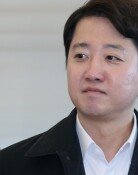[Editorial] Welfare State
The government is making long-term taxation reform plans in order to increase tax revenue. To meet the increasing needs of social welfare (including the development of fair educational programs) and unification costs, it is estimated that about 354 trillion won needs to be added to the national budget over the next 10 years.
Regarding this, the Ministry of Finance and Economy submitted a draft plan to President Roh Moo-hyun on January 3 for review, and finished a revision a few weeks ago. From the looks of things, the public tax burden is about to increase.
A government official said, We designed this plan in order to lessen the uneven distribution of wealth and lay the groundwork for advancing a welfare state. In response, Cheong Wa Dae added that a welfare state will be accompanied by economic growth, in the report: Economic Growth and Social Spending for Organization for Economic Cooperation and Development (OECD) Members, that it provided as evidence for its position.
However, the idea of a welfare state is very old one, even in advanced socialist democratic communities such as Scandinavian countries. The Swedish government released a statement saying, Welfare states face significant pressure when their rapid economic growth ends, on its homepage. The French government, a long-time proponent of welfare programs, has moved to develop a new welfare model while strengthening controls over unemployment benefits and concentrating on middle-class tax cuts.
Because of increasing unemployment and slow economic growth, European countrieswhich once pursued the convergence of social welfare and the market economyare beginning to scale back their welfare spending rates and adopt market-oriented economic welfare systems.
The report that Cheong Wa Dae uses to support its welfare state assertions uses old statistical data (national debt data from 1961 to 1990, and labor productivity data from 1979 to 1996). Because of this, the report doesnt reflect recent events, such as the rapid labor productivity growth in the U.S. since 1998, and the doubling of Australias national debt since 1990. Cheong Wa Daes assertion that since there is no evidence that increasing social spending hampers economic growth, it is not a bad idea to collect more taxes is therefore not rational.
Regarding this report, we should pay attention to the remarks of University of California at Davis professor Peter Lindert, who says, Direct government intervention in the market, public enterprise expansion policies, and worker protection acts dont represent the nature of welfare states. In fact, stronger government market controls often retard economic growth.
Rohs government, which has been marred by unfair public appointments and a distorted policy direction, has a new plan: collect more taxes and become a welfare state. We wonder how other welfare states will react to this.



![[속보]신한카드 가맹점 대표 19만명 개인정보 유출](https://dimg.donga.com/c/138/175/90/1/wps/NEWS/IMAGE/2025/12/23/133022917.1.jpg)



